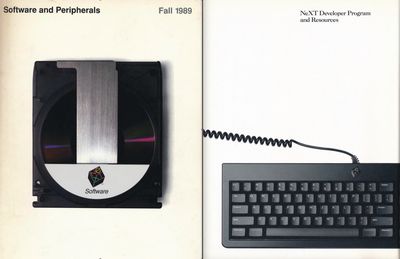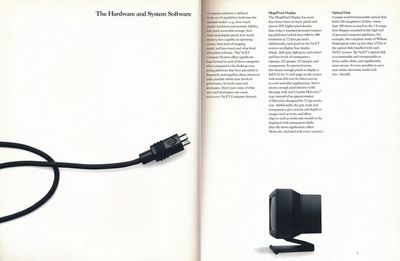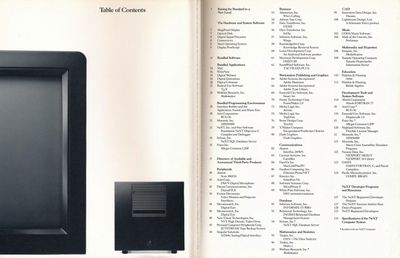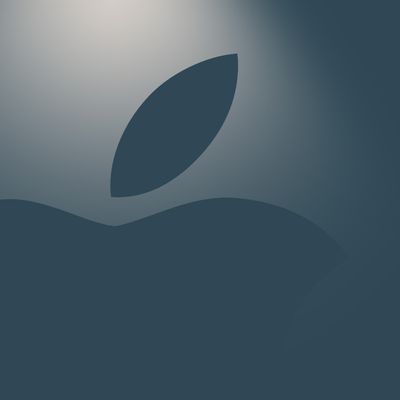An interesting piece of technology history was highlighted by The Verge over the weekend that may be of interest to Apple users both young and old.
Amateur computer historian Kevin Savetz recently scanned the Fall 1989 issue of the NeXT catalog and uploaded the files to Archive.org. That makes the entire 138-page book available for perusal online, offering an intriguing glimpse into NeXT's software, user interface, peripherals, and more.

For those unfamiliar with the history, NeXT was the company that Steve Jobs founded in 1985 shortly after he was fired by Apple, along with a handful of co-workers. The company specialized in designing high-powered computer workstations for the higher education and business markets.
NeXT lasted until 1997, when Jobs was rehired at Apple. Apple purchased the company for $429 million (equivalent to $670 million in 2018) and 1.5 million shares of Apple stock.

I scanned the fall 1989 NeXT Software and Peripherals catalog in glorious 600 DPI and uploaded to @internetarchive. 138 pages! https://t.co/a1xpteHERt pic.twitter.com/UbV6zKcZEm — Kevin Savetz (@KevinSavetz) July 4, 2019
Estimates suggest NeXT shipped about 50,000 computers in total, so sales were limited. However, the legacy of the NeXTSTEP OS and development environment proved to be highly influential, and eventually became the basis for macOS, iOS, watchOS, and tvOS.

Savetz told The Verge that the catalog was "part of a large lot of old computers that I bought from a local computer refurb/recycling organization. I had never seen a catalog like it, and couldn’t find much reference to it online, so it was an easy choice to scan it."
























Top Rated Comments
You might be interested to know that in the “Old Time Radio" section there exists a nearly complete archive of the CBS Radio Mystery Theater in one single example. The only reason it even exists is because a HAM Radio/SW Radio enthusiast began recording it on reel-to-reel when it debuted, including the Audition (pilot) episode which was in fact titled, Inner Sanctum Mysteries and was produced by Himan Brown. CBS decided to keep the old creaking door but retitled it CBS Radio Mystery Theater. They never saved an episode and never renewed their Copyright. Thanks to this guy and his timer (which recorded in gross increments, 30, 60, 90, etc.) we not only have nearly all the CBSRMT episodes but we get about 10 - 15 minutes of WOR local and national news. We even get the episode interruptions for important bulletins regarding Ford's assassination attempt and Vietnam troop withdrawal.
The last hold-out was QUIET PLEASE. It was uploaded in its entirety but then taken down by a challenge from the family of Ernest Chappell, the actor and narrator who performed in every episode, who claimed since there were only a few extant shows known before a nearly complete shellac disc transcription archive was found under his bed, the family owned the program in its entirety. A Court found they did not and the archive was restored.
Archive.org doesn't get nearly the attention it deserves. You can get lost in all the wonderful items they have digitally stored there.
Sorry for being wordy. ;)
What’s Woz done since he left Apple originally? Not nothing, of course. He’s done some good stuff with his life, and he’s wealthy enough that he can afford a team of his own without Cook’s help if he wants. But he hasn’t done anything like that.
What’s Woz done with his life that’s anything like what Jobs achieved (both before and since he rejoined Apple)?
Modern graphic design in that style goes back 100 years, and it wasn't uncommon at all in 1989. It just contrasted wildly with popular contemporary graphic design.
1. Woz doesn’t have any desire to come back to Apple. Nor is he the right talent for Apple now. Not to say he wouldn’t have anything to contribute but his particular expertise and magic isn’t something Apple specifically needs anytime soon.
2. Big difference between where Apple was at then (90 days away from bankruptcy) and now (one of the most - if not the most - wealthy and successful companies in the world, ever). From a business perspective Apple hardly needs saving anytime soon.
3. If Apple needs anything right now it’s product vision. For that, if anyone needs to come back - if “Cook [needs] the balls to bring back” anyone - its Forstall. If he’ll come.
That thing was like science fiction. No computer out at the time could hold a candle to it, and the CD drive, though slow, held so much information that it seemed seemingly inexhaustible. The monitor was so big that it felt like my neck would wear out having to move my head back and forth to see the whole thing. (It was about 16.5" diagonal - ha!)
Several years later I purchased a nextstation turbo. It took everything magical about the original cube and just made it faster. At the time I also spent $1400 to buy an additional 450MB hard drive (note the "M"... not a "G").
I loved those machines.
An additional funny story. At that time I was also friends with some Apple engineers. When I told them that I had purchased a NeXT station they were both envious and dismissive.
Envious because they knew (and admitted) that this machine was years ahead of anything else on the market. Dismissive because the writing was already on the wall for NeXT. When I said I hoped NeXT would survive, they said not to worry. The tech was so good that it wouldn't disappear. Just the name. Somebody would purchase it and it would live on.
How right they were.
As an aside, with regard to Woz, he has done amazing things with his life. Things that Jobs never even came close to achieving. But these things all involved directly connecting with people who needed him as a teacher or philanthropist, and not so much things that would turn into money. Jobs accomplished a lot, but from (nearly) first hand knowledge, he was an ******* disinterested in helping anyone who wasn't already successful.* He may have built the world's most successful company, but Woz is the person I'd rather have an army of.
*source: my brother who briefly worked with him to get Apple to contribute to philanthropic causes. It was an almost complete failure.